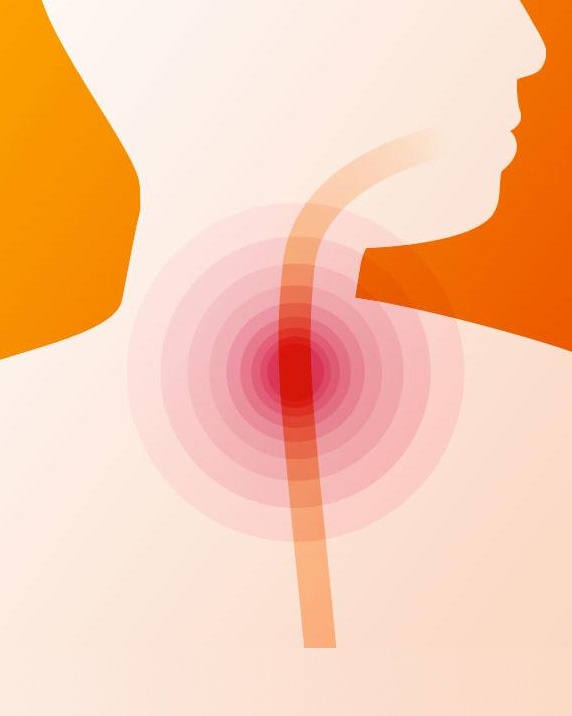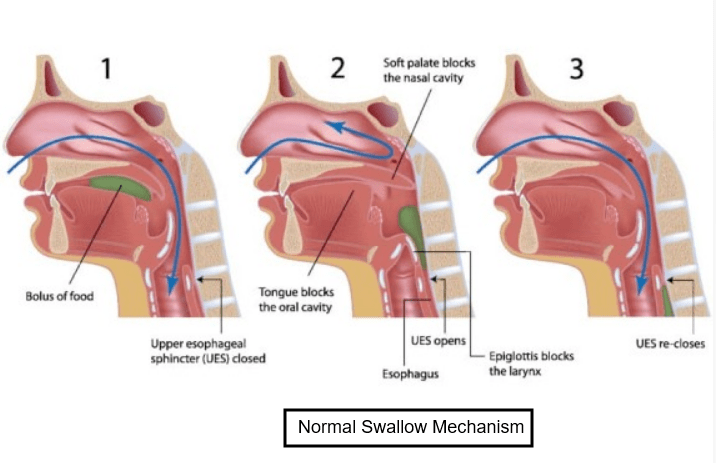Definition
Swallow disorders, also known as dysphagia, refer to difficulties or abnormalities in the process of swallowing food, liquids, or saliva. These disorders can range from mild to severe and may affect individuals of all ages.

Causes of Swallow Disorders
Swallow disorders can be caused by various factors, including:
Neurological Conditions: Stroke, Parkinson’s disease, multiple sclerosis, and other neurological disorders can affect the coordination of swallowing muscles.
Structural Abnormalities: Conditions like esophageal strictures, tumors, or abnormalities of the throat or esophagus can obstruct the swallowing process.
Gastroesophageal Reflux Disease (GERD): Chronic acid reflux can lead to irritation and damage to the esophagus, resulting in swallowing difficulties.
Muscular Disorders: Conditions such as myasthenia gravis or muscular dystrophy can weaken the muscles involved in swallowing.
Aging: Natural aging can affect the strength and coordination of swallowing muscles.
Medications: Some medications may cause dry mouth or other side effects that contribute to swallowing difficulties.
Symptoms of Swallow Disorders
Swallow disorders may manifest with various Swallow Disorders symptoms, including:
Difficulty Swallowing: Feeling as if food or liquids are getting stuck in the throat or chest.
Pain or Discomfort: Painful swallowing (odynophagia) or a sensation of pressure during swallowing.
Regurgitation: Food or liquids returning to the mouth after swallowing.
Coughing or Choking: Coughing or choking when attempting to swallow.
Weight Loss: Difficulty eating may lead to unintended weight loss.
Voice Changes: Changes in voice quality or frequent throat clearing.
Aspiration: In severe cases, inhalation of food or liquids into the airway, which can lead to respiratory problems.

Treatment of Swallow Disorders
The treatment of swallow disorders depends on the underlying cause and severity. Swallow Disorders Treatment options may include:
Diet Modifications: Adjusting the texture of food and liquids to make swallowing easier.
Swallon Therapy: Speech-language pathologists can provide techniques and exercises to improve swallowing coordination.
Medications: Medications to address underlying conditions like GERD or neurological disorders.
Esophageal Dilation: For strictures or obstructions, procedures to widen the esophagus.
Botulinum Toxin Injections: In some cases, injections to relax specific muscles involved in swallowing.
Surgical Interventions: Surgical procedures to address structural abnormalities or remove obstructions.
Dietary and Lifestyle Modifications: Changes in eating habits and body positioning to prevent aspiration.
Management and Prevention
To manage and prevent swallow disorders
Hydration: Staying adequately hydrated to maintain moist oral and throat tissues.
Nutrition: Ensure a balanced diet and monitor caloric intake, especially in cases of difficulty swallowing.
Medication Review: Regularly review medications with a healthcare provider for potential swallowing-related side effects.
Oral Care: Maintain good oral hygiene to prevent mouth dryness and discomfort.
Support and Education: Seek guidance from healthcare professionals and support groups for coping strategies and dietary advice.
Summary
Swallow disorders, or dysphagia, involve difficulties in the swallowing process and can result from various causes. Symptoms may include difficulty swallowing, pain, coughing, and regurgitation. Treatment options range from diet modifications and speech therapy to surgical interventions, depending on the underlying cause and severity. Managing and preventing swallow disorders involve proper hydration, nutrition, medication review, and seeking professional guidance.


